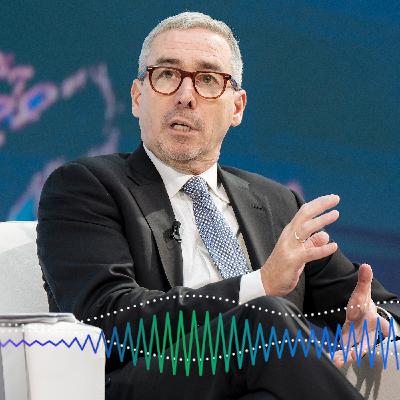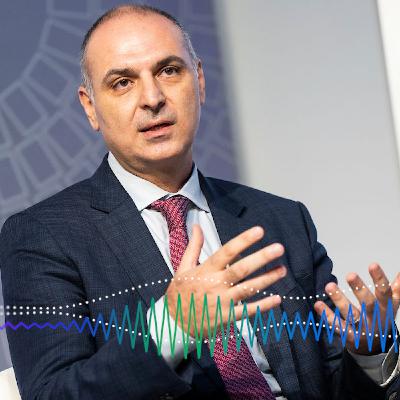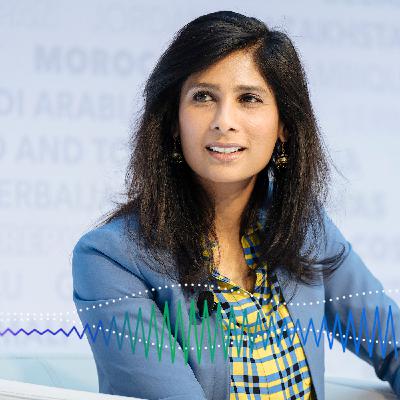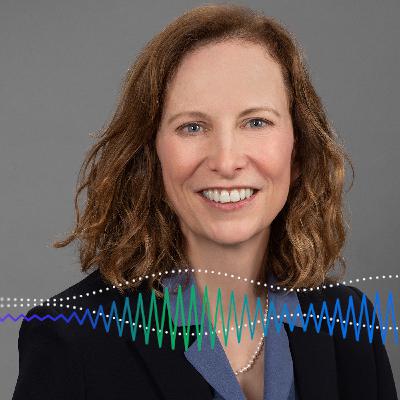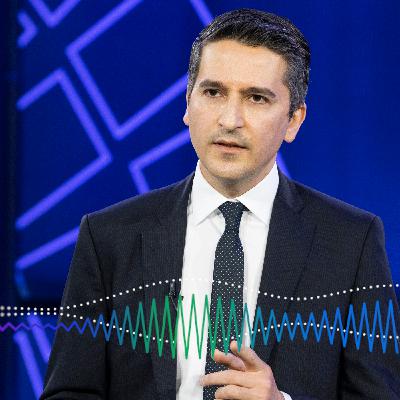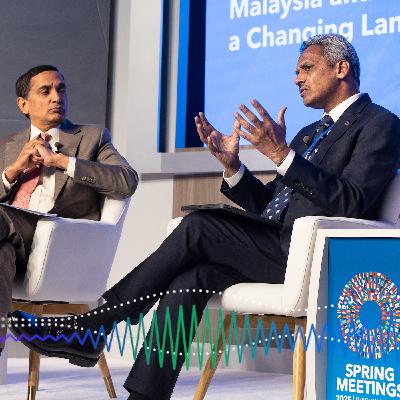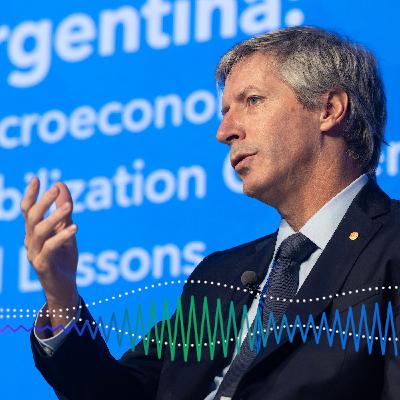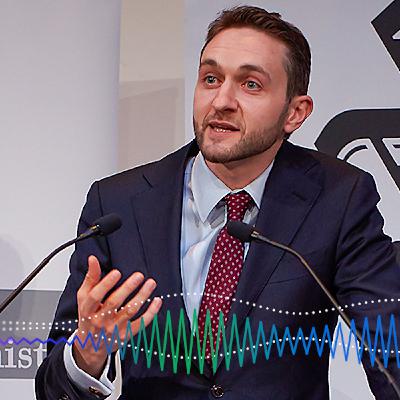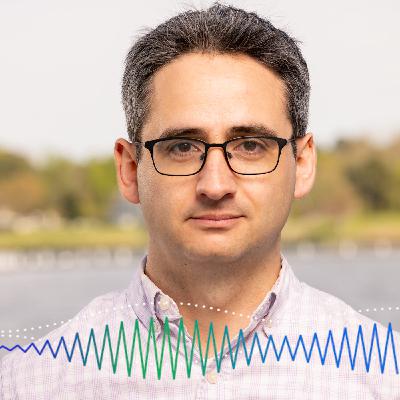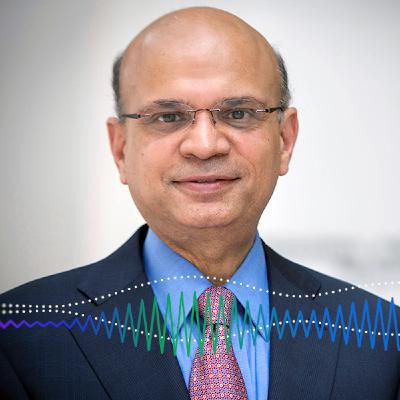Discover IMF Podcasts
IMF Podcasts

679 Episodes
Reverse
It's not unusual for countries to reevaluate trade relationships as the global economy evolves. However, the persistent uncertainty brought on by tariffs has prompted entire regions to reconsider long-established alliances and rethink new ones that were unimaginable only a year ago. Gordon Hanson, international economist and Professor of Urban Policy at the Harvard Kennedy School, was invited to join a panel discussion on the global economy during the IMF-World Bank Annual Meetings. In this podcast, Hanson says, we need to reinvigorate the process of building new trade agreements that reflect the new world, and middle- and newly high-income countries should play a leading role. Transcript: https://bit.ly/4qT4LvS
While the US dollar has been at the top of its game for decades, new players are testing its reign. Chess grandmaster-turned-economist Kenneth Rogoff has long cautioned of the dangers that high debt and fiscal burdens could have on the world's favorite reserve currency, and in his latest book, Our Dollar, Your Problem, he says its share of global reserves may be on the decline. Kenneth Rogoff is currently the Maurits C. Boas Chair of International Economics at Harvard. Transcript: https://bit.ly/3WXdHCZ
The US is a breeding ground for startups, and California has been the center of that universe since the dot-com boom in the late 1990s. But rising costs, tighter quarters, and increasing bureaucracy have many tech innovators seeking greener pastures, well beyond Silicon Valley. Princeton University's Swati Bhatt has been studying the evolution of America's startup boom in recent years and has uncovered a surprising trend toward rural communities, better known for raising cattle than for high-tech infrastructure. In this podcast, Bhatt talks to journalist Rhoda Metcalfe about these new entrepreneurs opting for a different lifestyle. Transcript: https://bit.ly/3WcTvfM Read the article in Finance & Development magazine IMF.org/fandd
While countries came together in the late 80s to fight money laundering and the financing of terrorism, technology and the advent of virtual currencies have further complicated the tracking of illicit financial flows across borders. Over $51 billion in cryptocurrency was used by criminals last year to circumvent traditional banking regulations. Chady El Khoury is an assistant general counsel and heads the Financial Integrity Group at the IMF. In this podcast, El Khoury says the anonymity of virtual currency transactions is supercharging the ability for criminals to grow their empires. Transcript: https://bit.ly/3KOjzeA
Bringing nations together to maintain peace and security and raise living standards for all seemed a utopian idea in the early 20th century. Still, geopolitics, economics and vision by world leaders eventually came together to make it a reality. But what happens when the great powers that have been supporting the multilateral system decide it's not working for them anymore? Danny Quah has studied the increase in global economic tensions and sees the rising East as an important factor. Quah is the Li Ka Shing Professor of Economics at the National University of Singapore. In this podcast, he says that while economics and geopolitics worked together to build the multilateral rules-based system, they are now working together to break it apart. Transcript: https://bit.ly/4grrx9n Read the article in Finance & Development magazine: IMF.org/fandd
A lot has happened in the global economy since 2019, and few people know that better than Gita Gopinath. As the IMF Chief Economist and subsequently the institution's First Deputy Managing Director, she navigated unprecedented global crises, including the pandemic and the ensuing great lockdown, wars in Ukraine and the Middle East, inflation, and geopolitical fragmentation. Her career as a Professor at Harvard University was put on hold to take on those IMF roles, but now she's back. How will the 2025 version of Professor Gopinath compare to the 2018 version? In this podcast, Gita Gopinath reflects on her experiences at the Fund and what she's taking back with her to Harvard. Transcript: https://bit.ly/4npTyR5
As tech innovation, particularly in the field of AI, is increasingly focused on a few key players, the industries benefiting from these tools have also become more concentrated, which Carl Benedikt Frey says could weigh on growth. Frey is an associate professor of AI and Work at Oxford University, and his latest book, How Progress Ends, suggests that waves of technological and economic progress are often followed by stagnation. In this podcast, Frey says the concentration of AI-using industries will push the direction of technological change further towards automation rather than product innovation. Transcript: http://bit.ly/45Z1IbR Read the article in Finance & Development magazine: imf.org/fandd
There was a time when economic expertise ruled policy debates at virtually all levels of government. And while trade, taxation, and other important policies are still guided by economic analysis, economists increasingly feel sidelined by politics. In her former roles as chief economist at the US Treasury Department and senior economist at the White House Council of Economic Advisers, Harvard professor Karen Dynan has seen too much solid economic research be rejected due to overly dense presentations. In this podcast, Dynan says economists need to engage with policymakers and the public at a level that they can understand if they want to be part of the policy conversation. Transcript: https://bit.ly/4ojNbA6 Read the article in Finance & Development magazine: www.imf.org/fandd
Public resistance to new policies often leaves policymakers scratching their heads. What seems a perfectly reasonable policy to a government is often perceived by its citizenry as regressive. Stefanie Stantcheva's multidisciplinary approach to research digs deep into the minds of people at the receiving end to help design better policies. Stantcheva is a professor of economics at Harvard University, and this year's recipient of the prestigious Clark Medal, awarded by the American Economic Association for the most significant contributions to economic thought by an economist under 40. She sat down with journalist Rhoda Metcalfe to discuss how tax policy impacts innovation for the IMF series on extraordinary Women in Economics. Transcript: https://bit.ly/453h1ku
Most advanced economies are witnessing their populations age and labor forces shrink, and the same trend is expected to hold for the largest emerging economies within the decade. So the largely touted demographic dividend of previous decades is making way for a demographic drag. Diaa Noureldin is an economist in the World Economic Studies division in the IMF Research Department. In this podcast, he says healthy aging and policies that keep people in work longer could offset the demographic drag on growth. Transcript: https://bit.ly/4jS000P Read the article in Finance & Development IMF.org/fandd
After four long years of numerous crises, sub-Saharan Africa's hard-won recovery has been disrupted by yet another shock. The sudden shift in the global outlook has clouded the region's short-term prospects and significantly complicated policy making. Economist Andrew Tiffin and his team produce the IMF Regional Economic Outlook for sub-Saharan Africa. In this podcast, Tiffin says the current shake-up in global value chains, while disruptive, can create new trade and investment opportunities. Transcript: https://bit.ly/3ZsstTI Read the report at IMF.org
While the German economy has been one of Europe's strongest for decades, its performance in recent years has fallen short of expectations. Why is this once economic powerhouse now lagging? Ulrike Malmendier is a professor of economics and finance at the University of California, Berkeley, and serves on the German Council of Economic Advisors to the German government. In this podcast, Malmendier says an aging population and a lack of workers are contributing to the country's economic woes. Transcript: https://bit.ly/3SVnmaW
Malaysia is one of Southeast Asia's strongest economies and has recently been lauded for its ability to keep inflation in check. But Malaysia is not immune to the rising global trade tensions and uncertainty of late. In this podcast, IMF Asia and Pacific Department head Krishna Srinivasan sits down with Bank Negara Malaysia Governor Abdul Rasheed Ghaffour to discuss the intricacies of central bank operations amid this changing landscape. The conversation occurred in the Governor Talks series held during the IMF-World Bank Spring Meetings. Watch the webcast at IMF.org
After years of economic turmoil, Argentina's central bank chief has doubled down on efforts to restore confidence in the Argentine peso and normalize its economy. In this podcast, Governor Santiago Bausili and IMF Western Hemisphere Department head, Rodrigo Valdés discuss the challenging process of stabilizing Argentina's bi-monetary economy. The conversation occurred in the Governor Talks series held during the IMF-World Bank Spring Meetings. Transcript: https://bit.ly/4iUN3mu
Never underestimate the value of a good idea. Ideas are the starting point for innovation; few things fuel economic growth more than innovation. However, most of today's innovators emerge from a narrow demographic group with specific backgrounds, which Xavier Jaravel says creates the phenomena of "Lost Einsteins" and "Lost Marie Curies". Jaravel is a professor of economics at the London School of Economics. In this podcast, he talks about the benefits of unleashing untapped talent and broadening the pool of innovators worldwide. Transcript: https://bit.ly/4j5jrTS Read the article at IMF.org/fandd
Economists have long surmised that people's knowledge and skills contribute significantly to economic development, but to what degree can access to an education change lives? Amory Gethin has compiled data from surveys from more than 150 countries to measure what economists have never measured before: the correlation between education and individual incomes. Gethin is an economist in the World Bank Development Research Group working on growth and inequality and has sought to quantify the economic value of education as it relates to global poverty reduction. In this podcast, Gethin says investing in education advances those who pursue degrees and those who don't. Transcript: https://bit.ly/4iFzYOl
While we like to think our financial decisions are based on logic, the truth is, they are largely driven by emotion. So when John Maynard Keynes looked for methods to measure economic fluctuations, animal spirits were a key ingredient. Karthik Sastry is a macroeconomist and assistant professor at Princeton University. In this podcast, he says personal instincts and primal urges are known to cause cycles of boom and bust, and one way to gauge those emotions is through economic narratives. Sastry is coauthor with Joel Flynn of How Animal Spirits Affect the Economy published in Finance and Development magazine. Transcript: https://bit.ly/43HkuoB Read the article at IMF.org/fandd
Modern economics was built on ideas spelled out by Adam Smith in his 18th-century The Wealth of Nations. But while he used the term only once in that economic treatise, Smith is most remembered for "the invisible hand," a metaphor Oren Cass says has wrongly been associated with the idea that the pursuit of profit is always socially beneficial and that markets are somehow magically guided by that principal. Cass is the founder and chief economist at American Compass. In this podcast, he says the contortion of Smith's idea led to a blind faith in markets, whereas "the invisible hand" was about ensuring the alignment between private profit and the public interest. Transcript: https://bit.ly/3DdWizp Read the article in Finance and Development: IMF.org/FANDD
Driving Change: Women-Led Development Economics from the Ground Up The International Economic Association's Women in Leadership in Economics Initiative (IEA-WE) connects women economists worldwide and helps showcase their important empirical research, especially in developing countries. IMF Podcasts has partnered with the IEA-WE to produce a special series featuring the economists behind the invaluable local research that informs policymakers in places often overlooked. This episode of Driving Change features Bangladeshi economist Rumana Huque, whose research into the real costs of tobacco consumption is prompting a rethink of the country's tobacco tax system. Transcript: https://bit.ly/3QzmCqP Other episodes include Kenyan economist Rose Ngugi, whose indices help local counties design policies that work, Colombian economics Professor Marcela Eslava, whose research looks to fix Latin America's dysfunctional social security network, and Ipek Illkaracan who makes the business case for investing in social care infrastructure. Special thanks to IEA editor Navika Mehta for this collaboration.
The pandemic was a brutal reminder of how crucial public health systems are, yet health budgets in many countries are still underfunded. Developing economies generally do not allocate sufficient domestic resources to health and external financing is becoming increasingly difficult to secure. Sanjeev Gupta is a senior policy fellow at the Center for Global Development and coauthor with Victoria Fan of How to Heal Health Financing, published in Finance and Development magazine. In this podcast, Gupta says greater revenue collection and improved budget execution would strengthen health systems in low-income countries and reduce the need for foreign assistance. Transcript: https://bit.ly/4hRwZSP Read the article in Finance and Development: IMF.org/fandd


